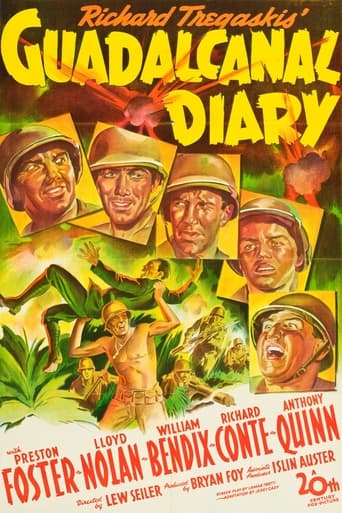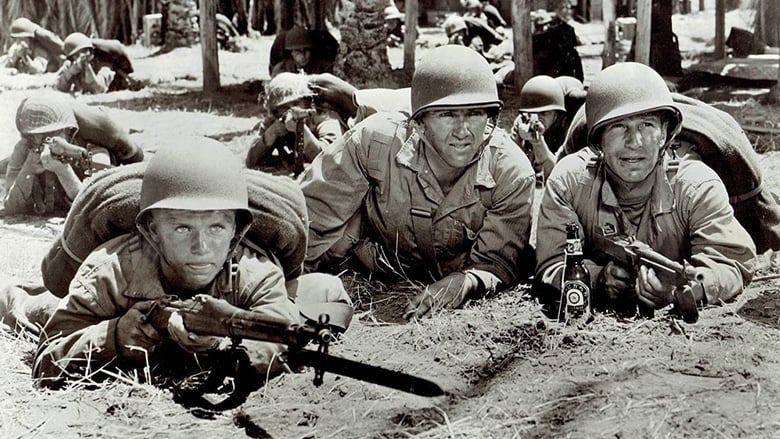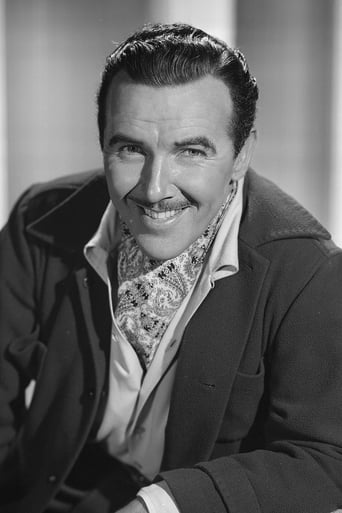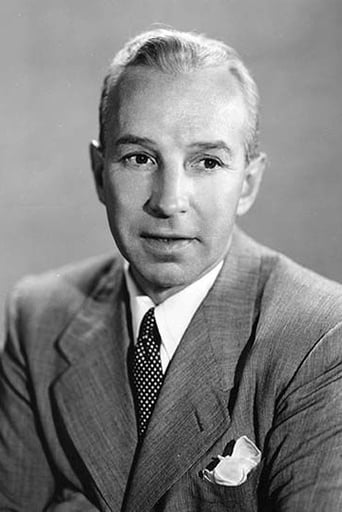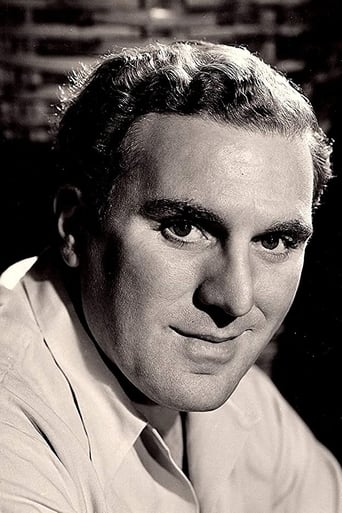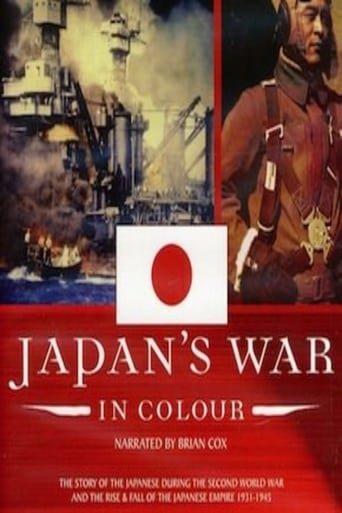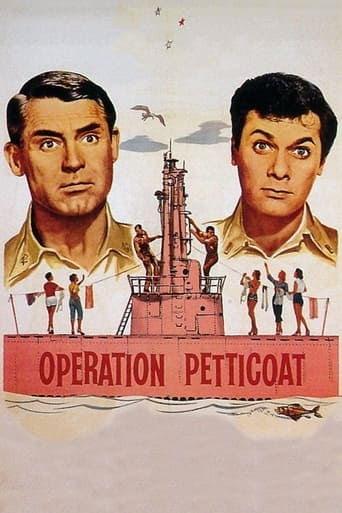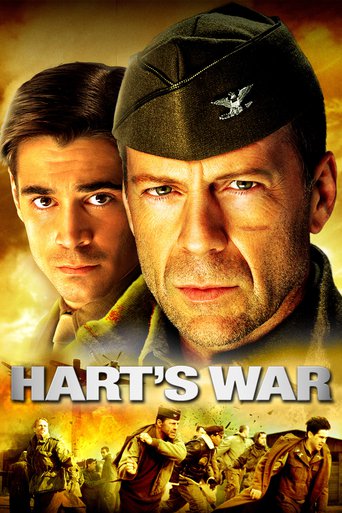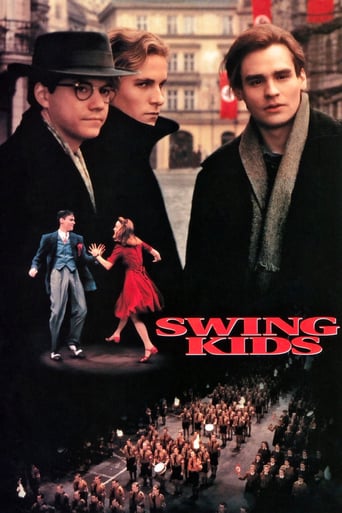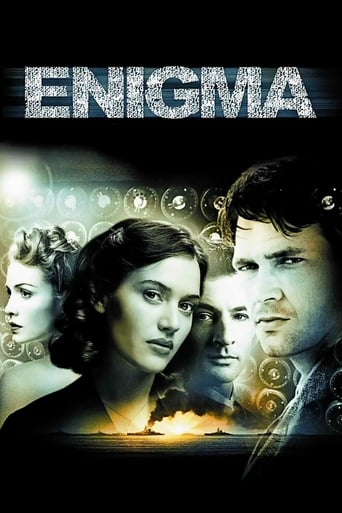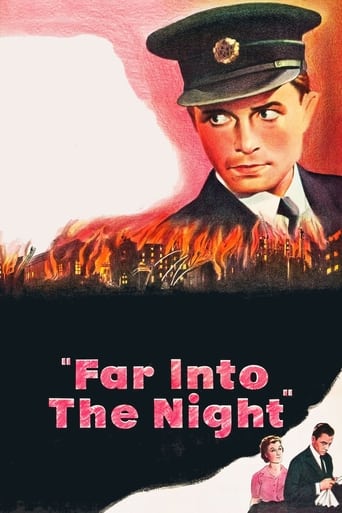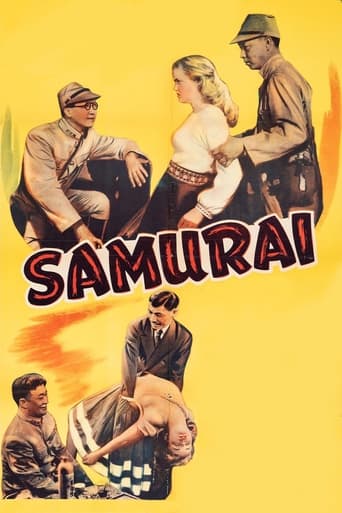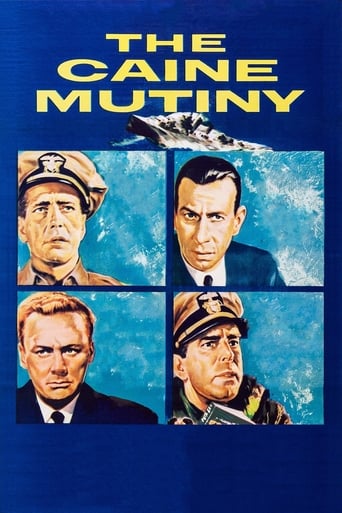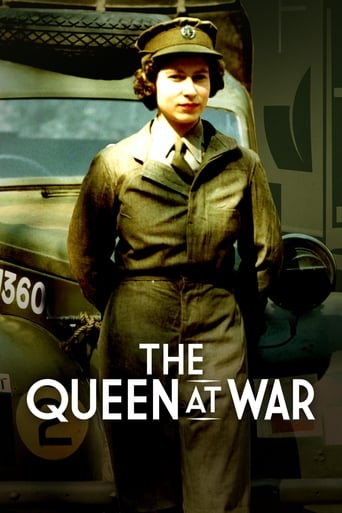Guadalcanal Diary (1943)
Concentrating on the personal lives of those involved, a war correspondent takes us through the preparations, landing and initial campaign on Guadalcanal during WWII.
Watch Trailer
Free Trial Channels
Cast


Similar titles
Reviews
I saw this movie before reading any reviews, and I thought it was very funny. I was very surprised to see the overwhelmingly negative reviews this film received from critics.
When a movie has you begging for it to end not even half way through it's pure crap. We've all seen this movie and this characters millions of times, nothing new in it. Don't waste your time.
Clever and entertaining enough to recommend even to members of the 1%
This film is so real. It treats its characters with so much care and sensitivity.
A cast of familiar actors (none of them stars) take you on a journey through the real horrors that is war. Imagine being the parent of a soldier in the South Pacific, unaware of what was going on other than what was permitted to be printed, and sitting in a movie theater during the middle of a world war and wonder if your boy would return home complete, minus a limb or in a box. Nearly 75 years later, numerous wars later, and countless deaths, these themes still resonate and the impact is still massive.Done in a semi-documentary style, this is powerfully narrated by ... and features a dozen or more familiar faces, yet as real as the home sprung young men who really were over there. MGM had "Bataan"; Paramount "Wake Island", and Warner Brothers "Destination Tokyo", and this 20th Century Fox historical documentation of a real battle, making it one of the very best of the hundreds of war films released up until the end of the war just two years later. Combination of slice of life and riveting action, this has a storyline (if not a fully fleshed out plot line) that probably packed the theaters each and every showing.Of the cast, Preston Foster (as the troop minister) was probably the best known at the time, with Anthony Quinn perhaps the biggest name to rise from this. William Bendix is the most memorable, totally bombastic as a good natured, if overly chatty Brooklyn native. Richard Conte, Lloyd Nolan, Lionel Stander and Richard Jaeckel are other familiar faces who each get moments to shine. The film shows them first relaxing on their way to their assignment, laying around on each other's shoulders and chests as they bond before battle. They deal with the unknown, the impact of killing a supposed enemy, and their own mortality. It's poetic and beautiful.
Though I've never actually counted I'm willing to bet the farm that there have been at least four other films featuring Guadalcanal so I can justify my summary. However many there actually were they'd be hard pushed to eclipse this effort which has several things going for it; it was produced less than a year after the events it portrays and at a time when the war - in terms of US involvement - was more or less at the halfway point and to add to the authenticity it was based on a first-hand account - or, as Historians say - Primary Source material by war correspondent Richard Tregaskis. Throw in an excellent cast, none of whom was really a leading man but were the cream of supporting actors led by Lloyd Nolan, William Bendix and Preston Foster and the result is one of the finest of the First Wave of World War II movies.
"Guadalcanal Diary" came out smack dab in the middle of the U.S. fighting in WW II. It was made the year after the actual events portrayed in the film. It's based on a book by the same title, written by Richard Tregaskis. He was a war correspondent who covered the taking of Guadalcanal. One can appreciate this film for its reality and straightforward portrayal as written by the author. This was before Hollywood began to fantasize and over dramatize many of the battles and the war action in later films. The narration is a nice touch, with an actor representing the author who tells us about the story as it unfolds. Others have commented on the excellent cast. All actors did a superb job in portraying a bunch of American Marines who hadn't yet seen war and had no idea of what to expect. Onboard ship somewhere in the South Pacific, we see the men lying around and waiting and wondering. The usual hijinks and talk about girls back home, baseball and family take place. Finally, we see the naval bombardment, the beach landing unchallenged by the Japanese, and then the battles as the Marines move inland and route the enemy. Some other nice touches of realism are in the lines by various actors. Lloyd Nolan as Sgt. Hook Malone cautions the men about not going after Japanese souvenirs because they could be booby-trapped. Preston Foster as the chaplain, Father Donnelly, is a paternal figure for the men who will be right beside them in the first wave to hit the beach. Col. Grayson tells the men it will be a tedious, tough job to route the enemy, because the Japanese soldiers are tough. We see ordinary men fighting, getting wounded, and being killed – on both sides. When Army replacements arrive, the Marines welcome them. The battle action sequences are very realistic, and the movie makers must have received actual film footage of the naval bombardment from the Navy. It's very impressive. Some people quibble about racial slurs. We must remember that this film is an accurate portrayal of what really happened, and what it was like for and with our troops. Later modern sanitized films were scripted to be politically correct, but in the process they sacrificed some of the truth and realism of the times and events. Movie companies today put disclaimers on older films for various portrayals, especially regarding race and culture. They point out the inappropriate language, behavior or treatment of some people in the older films, by today's standards. And, they note that to expunge or change the film to eliminate such material after the fact, would be a denial of the facts and truth that such things had occurred in history as portrayed. Therefore, they have significant historical value in educating society about those times and behaviors of the past. This film is a must for any serious war film collection.
"Guadalcanal Diary" qualifies as the first American combat film about a seaborne military invasion of a Japanese-occupied island during World War II. Movies made during World War II were always patriotic and none of the enlisted men ever contemplated killing their superior officers because the latter were incompetent strategists. All of these guys get along great. The one who doesn't walks off into the jungle since he received no mail from home. Nobody is involved in the black market. Nobody utters any unpatriotic sentiments. One soldier confesses that he cannot handle the burden of Guadalcanal and hopes that God will protect him. Not surprisingly, Father Donnelly is the Marine priest who helps them out with their spiritual crises. Consequently, "Old Hickory" director Louis Seiler's movie about Guadalcanal represents a traditional American combat outing. Seiler and "In Old Chicago" scenarist Lamar Trotti chronicle the landings and life on Guadalcanal beginning when the landed in early August until late October. "Guadalcanal Diary" opens with an image of the Richard Tregaskis book atop a map of Guadalcanal in the Solomon Islands. An off-screen hand opens the book for us to read the foreword: "A new chapter in the history of America by a correspondent who landed on Guadalcanal with the first detachment of United States Marines." The action unfolds on a U.S. Navy transport somewhere in the South Pacific. The narrator informs us that it is Sunday, July 26, 1942. Soldiers are attending mass. Officers are sunning on deck, and a war correspondent (Reed Hadley of "Sky Raiders") promises a young Marine, Pvt. Johnny 'Chicken' Anderson (Richard Jaeckel of "The Dirty Dozen" in his cinematic debut) that he put his name in one of his dispatches to his newspaper. Seiler acquaints us with the Marines and the top brass. The Marines are a fun-loving variety of guys, playing musical instruments, like the harmonica, dancing foolishly with each other, reminiscing about their home life, but mostly they are curious about their destination. About ten minutes into the narrative, Col. Wallace E. Grayson (Minor Watson of "To the Shores of Tripoli"), informs everybody that they are going to invade Guadalcanal. Gunnery Sergeant Hook Malone (Lloyd Nolan of "Ice Station Zebra") not only warns them about Japanese booby-traps but also snipers.Friday August 7th arrives and our heroes prepare to leave the transport. Initially, when they wade ashore, the Marines encounter no opposition. They secure the airstrip that they were sent to occupy. Later, Colonel Grayson sends Captain James Cross (Roy Roberts of "Cripple Creek") and a squad, including Private Jesus 'Soose' Alvarez (Anthony Quinn of "The Plainsman"), to check out the Japanese held village of Matanikau. The Marines go by sea rather than through the jungle. A Japanese submarine spots them at sea and blasts away at them. Marine shore batteries respond. One of the two boats takes a hit before the shore gunners can sink the sub. Our heroes aren't out of the frying pan. Moments after they scramble up the beach and send in a patrol, the Japanese cut loose. The Japanese prisoner who told them about the village assured them that the Japanese soldiers were starving and had thrown away their weapons. One of the officers on the patrol dies and another is wounded. Alvarez is ordered in to find the dead officer, Lieutenant Thurmond (John Archer of "Sherlock Holmes in Washington") and tangles with a couple of Japanese using his close-quarters combat skills to kill them. Cross realizes that he needs to get a message back to Grayson. The first runner is picked off while the Japanese kill everybody on the beach in their shallow foxholes except three. Cross watches as the surf slosh over the dead soldiers and the last two and he make a break for the palm trees. The Japanese open fire and kill the third man. Bullets cut down Cross. Seiler stages a sentimental scene when Cross's helmet falls off and he reaches for it. We see the photograph of his wife and children before he dies. Alvarez beats a retreat and dives into the ocean with the Japanese blazing away at him.Grayson leads the Marines through the jungle and they attack the Japanese. Chicken craves a sword alongside a fallen officer. When he disobeys Hook's warning, a sniper hits him. Meanwhile, another wisecracking Marine, Private Tex Mcllvoy (Eddie Acuff of "Gallant Sons") demonstrates his marksmanship skills and knocks a sniper out of a palm tree. Tex makes turkey calling noises and drops the enemy. "Scratch one squint eye," he observes. Throughout "Guadalcanal Diary" the Japanese are referred to with belittling, racist words. Earlier, Chicken questioned Hook about the morality of killing. "It's kill or be killed," Hook replies and then notes that the Japanese enemy are not people. Later, the Japan bomb Guadalcanal and send our boys into their foxholes. Eventually, the Army shows up to relieve the Marines after weeks and weeks of combat with no let-up and the Japanese ferrying in troops from nearby islands. At 65 minutes into the action, Captain Don Davis (Richard Conte of "The Godfather") leads a patrol to fight the Japanese holed up in caves. They clear the terrain above the caves and hurl satchel charges into a cave crowded with armed Japanese soldiers. The narration gets a bit heavy-handed at times. "Boys with the memories of death in their eyes" drones Hadley. For the record, Alveraz dies, but Chicken learns how to play possum and then get the drop on three Japanese soldiers and kill them. "Guadalcanal Diary" depicts the Japanese as a ruthless, tricky enemy. Director Seiler keeps them at arm's length so we never get to learn much about them except that they are thoroughly treacherous. "Guadalcanal Diary" concludes with another offensive against the Japanese on the South Seas Island.

